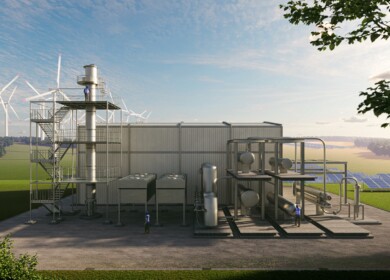US to fund lower-emission fertilizer with eye to greener ethanol

The U.S. Department of Energy has announced a $36 million funding initiative to develop technologies to reduce emissions from synthetic nitrogen fertilizers used to grow corn and sorghum for ethanol production. This initiative is expected to support projects that minimize the use of fertilizers while sustaining farm yields.
Evelyn N. Wang, director of the DOE’s Advanced Research Projects Agency-Energy program, emphasized the dual economic and environmental benefits of this initiative. “Given the importance of agriculture to the energy sector and our economy, technologies that reduce fertilizer-related energy emissions associated with ethanol, while shrinking operational costs and maintaining crop yields for the American farmer, are essential,” Wang stated.
According to the Environmental Protection Agency, agriculture contributes approximately 11% to U.S. greenhouse gas emissions, with nitrous oxide emissions, largely from nitrogen fertilizer application, accounting for about half of this figure.
This funding could significantly benefit the ethanol industry, which is actively seeking new growth opportunities amid a shrinking gasoline market due to the rise of electric vehicles. More environmentally friendly production processes could also position ethanol producers to capitalize on federal and state subsidies.
However, in April, ethanol producers faced a challenge when the Treasury Department issued guidance that essentially disqualified ethanol from qualifying for a sustainable aviation fuel tax credit included in the Inflation Reduction Act. This decision underscores the complex interplay between agricultural practices, energy production, and environmental policy.
Enjoyed this story?
Every Monday, our subscribers get their hands on a digest of the most trending agriculture news. You can join them too!















Discussion0 comments